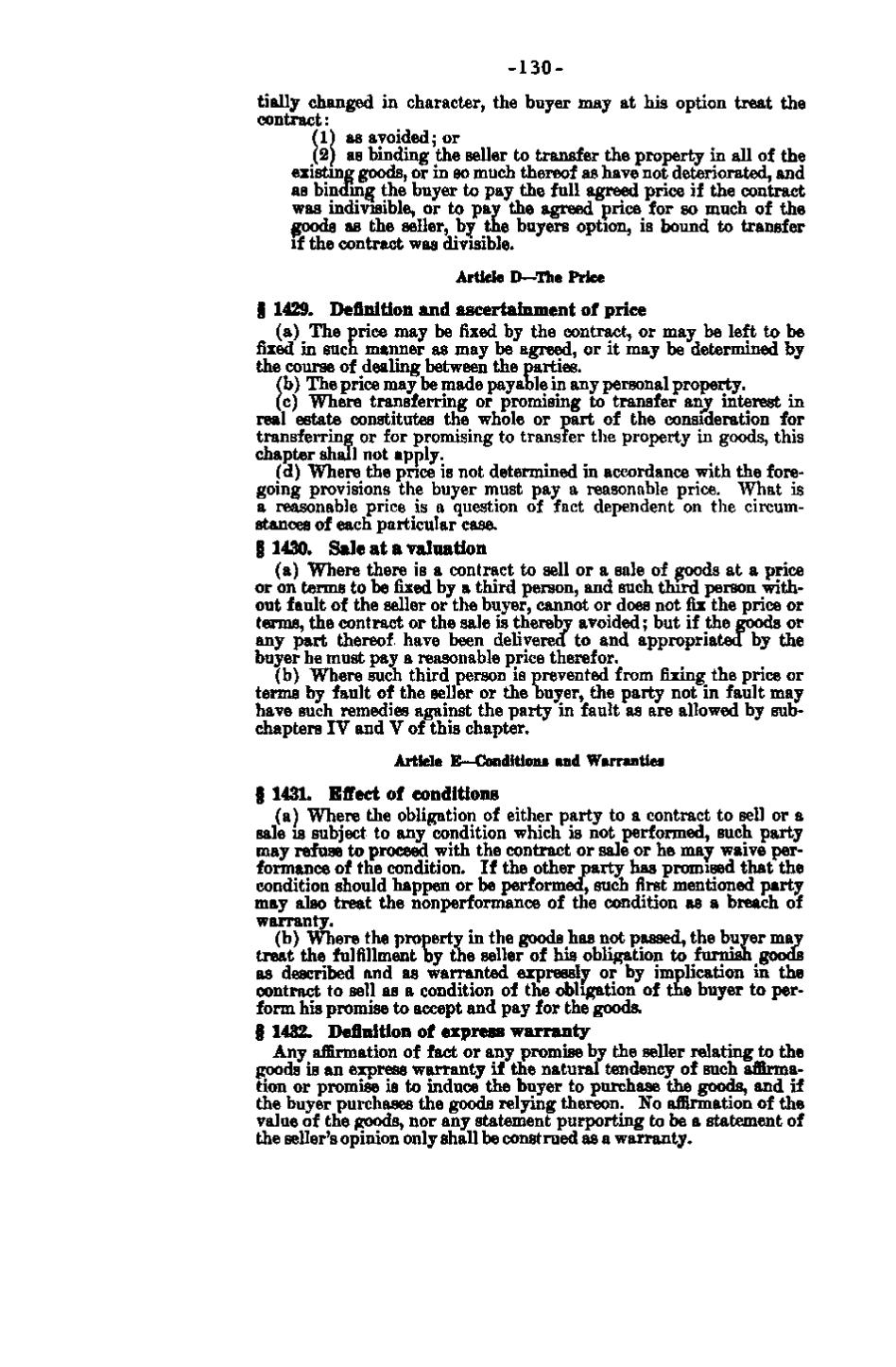–130–
-130tially changed in character, the buyer may at his option treat the contract: (1) as avoided; or (2) as binding the seller to transfer the property in all of the existing goods, or in so much thereof as have not deteriorated, and as binding the buyer to pay the full agreed price if the contract was indivisible, or to pay the agreed price for so much of the goods as the seller, by the buyers option, is bound to transfer if the contract was divisible. Article D—The Price § 1429. Definition and ascertainment of price (a) The price may be fixed by the contract, or may be left to be fixed in such manner as may be agreed, or it may be determined by the course of dealing between the parties. (b) The price may be made payable in any personal property. (c) Where transferring or promising to transfer any interest in real estate constitutes the whole or part of the consideration for transferring or for promising to transfer the property in goods, this chapter shall not apply. (d) Where the price is not determined in accordance with the foregoing provisions the buyer must pay a reasonable price. What is a reasonable price is a question of fact dependent on the circumstances of each particular case. § 1430. Sale at a valuation (a) Where there is a contract to sell or a sale of goods at a price or on terms to be fixed by a third person, and such third person without fault of the seller or the buyer, cannot or does not fix the price or terms, the contract or the sale is thereby avoided; but if the goods or any part thereof have been delivered to and appropriated by the buyer he must pay a reasonable price therefor. (b) Where such third person is prevented from fixing the price or terms by fault of the seller or the buyer, the party not in fault may have such remedies against the party in fault as are allowed by subchapters IV and V of this chapter. Article E—Conditions and Warranties § 1431. Effect of conditions (a) Where the obligation of either party to a contract to sell or a sale is subject to any condition which is not performed, such party may refuse to proceed with the contract or sale or he may waive performance of the condition. If the other party has promised that the condition should happen or be performed, such first mentioned party may also treat the nonperformance of the condition as a breach of warranty. (b) Where the property in the goods has not passed, the buyer may treat the fulfillment by the seller of his obligation to furnish goods as described and as warranted expressly or by implication in the contract to sell as a condition of the obligation of the buyer to perform his promise to accept and pay for the goods. § 1432. Definition of express warranty Any affirmation of fact or any promise by the seller relating to the goods is an express warranty if the natural tendency of such affirmation or promise is to induce the buyer to purchase the goods, and if the buyer purchases the goods relying thereon. No affirmation of the value of the goods, nor any statement purporting to be a statement of the seller's opinion only shall be construed as a warranty.
�
